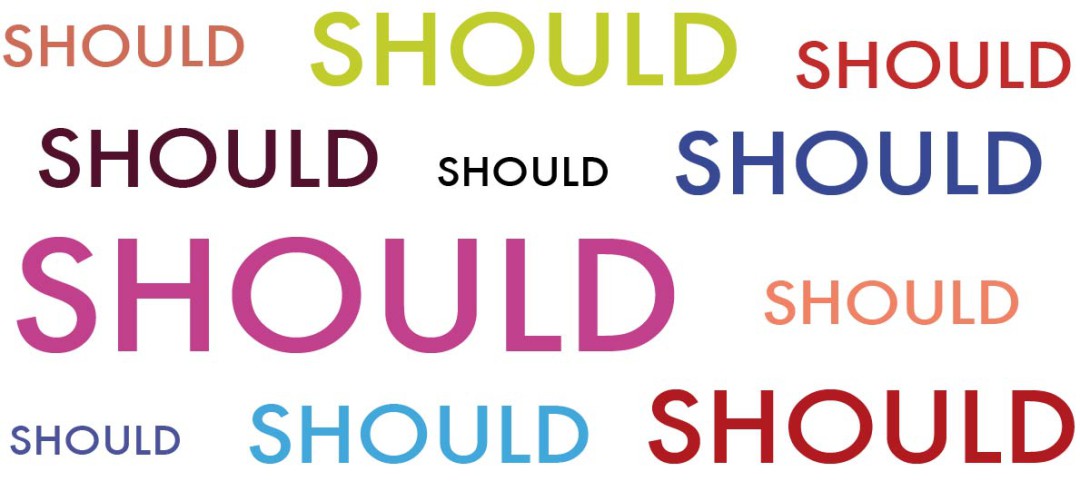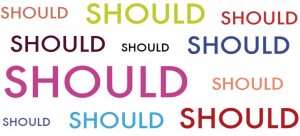Should You Work on Identifying “the Should’s”
We often have high expectations of ourselves and it can be a double edged sword. High self expectations can be motivating, making us feel good when we’re able to accomplish things. But, if we’re hearing a lot of the word ‘Should’ in our self talk, it can be a sign that we’re pushing too hard, that our expectations are unrealistic or we’re comparing ourselves to others.
Our Counsellor Wendy Monks-Janzen explains all about the ‘Shoulds’ and what to do about them in the short article below.
Have you found yourself using “should” statements? E.g., I should be happy, I should exercise more, or I should want to spend time with my children. These statements are a cognitive distortion—an irrational thought that influences our emotions. We all experience cognitive distortions (there are all kinds of cognitive distortions that we all tend to experience from time to time) to a certain degree; however, when we use these distortions with frequency, they can be harmful to our state of being.
Irrationally, we are criticizing ourselves—or others too! This can lead to self-sabotage, low motivation, preventing us from achieving our goals, falling back into old habits, or create stress and anxiety.
Begin being attentive to the frequency you are using Should Statements, examine why you are, is this statement a reflection of your own criticism or someone else’s, and define what you want to do, or what you could do— to replace that should.
If ‘Shoulds’ are occupying too much space in your mind, Wendy would love to work with you. She works with children of all ages, youth, and adults.
Book your appointment with Wendy, here.
Cheers to less ‘Shoulds’.
Penney


